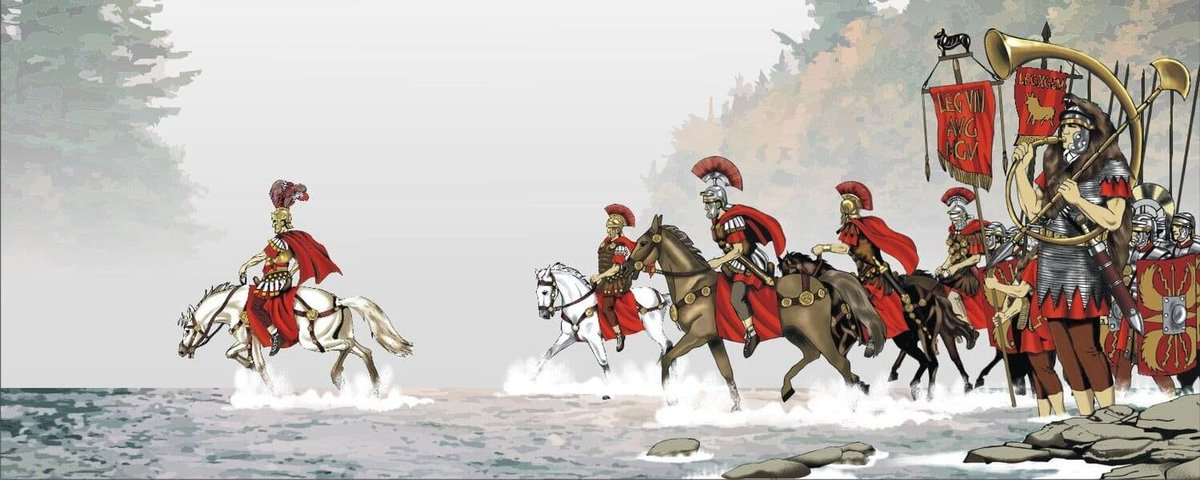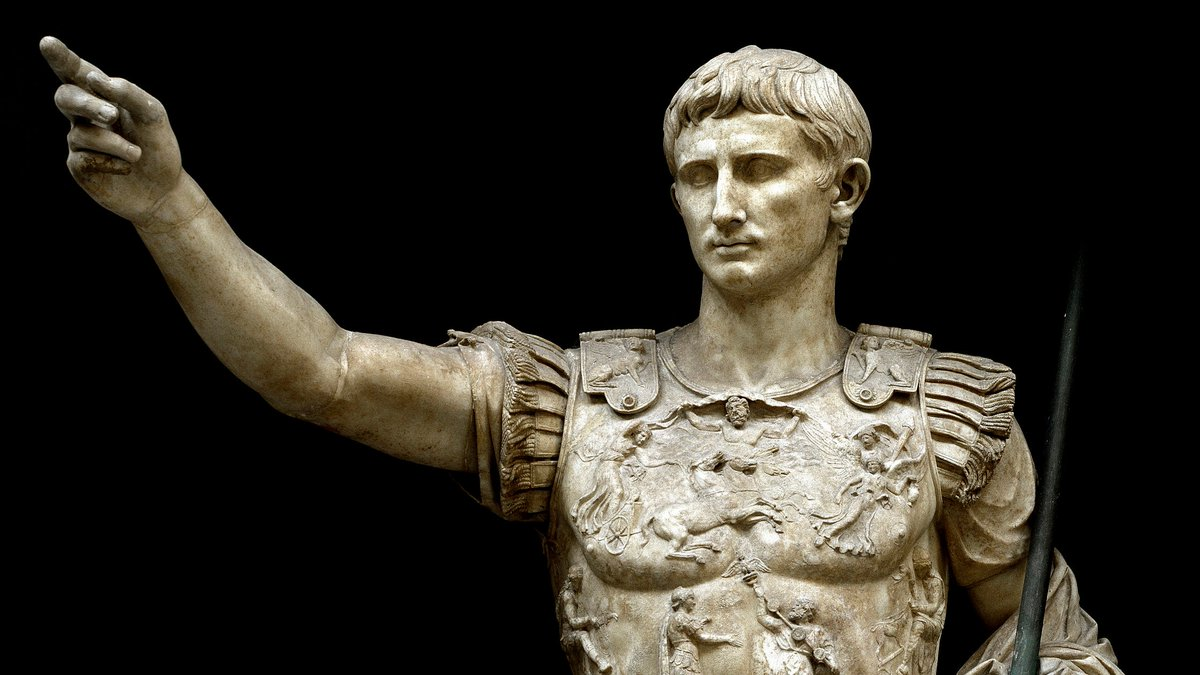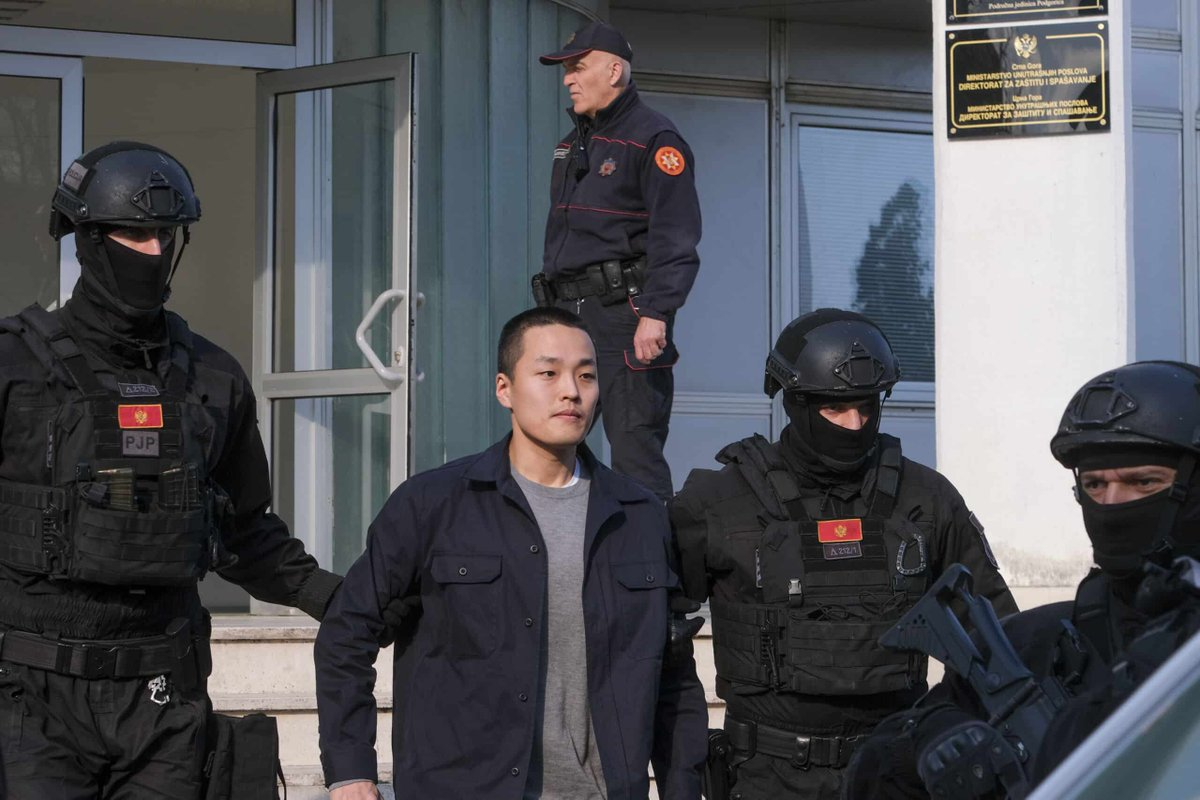The adventurous lives of Caesar and the giants of the crypto world reveal the key to success and failure in risk management.
Written by: @Tiza4ThePeople
Translated by: Baihua Blockchain

Prioritize Clear Goals and Control Risks
Bold risks can lead to great heights, but if not managed, risks will ultimately destroy you. As your achievements grow, potential gains gradually diminish; when risks exceed returns, it's time to scale back.
I have two great obsessions: cryptocurrency and history. I spend about 80% of my waking hours in these two fields. I’ve noticed that those who are remembered in history are often not the ones skilled in risk management, but rather those who continually raised the stakes and ultimately collapsed in spectacular fashion. The styles of Julius Caesar, Do Kwon, Alexander the Great, and Sam Bankman-Fried (SBF) are remarkably similar. Their insatiable appetite for risk propelled them to the peaks of their respective fields, but that same appetite also led to their downfall. The long-term best performers are often those who can flexibly switch between high-risk and low-risk strategies as conditions change and goals are met.
This article first reviews two key risk-takers and managers from ancient history, along with their modern counterparts in the cryptocurrency industry. We will see gamblers, madmen, and those who truly adjust their bets according to their goals and timely reduce risks.
The Original High-Risk Gambler: Gaius Julius Caesar
Caesar was born into a middle-class Roman family and built his career through extraordinary charm, excellent strategy, and—most importantly—massive debt. He climbed the "cursus honorum" to the position of consul but was unwilling to wait years at each position. He accelerated this process by taking on enormous risks and debts. After becoming consul at 41, to escape legal and financial reckoning, he further leveraged himself by bribing his way to become the governor of Gaul for five years (58 BC). At that time, his debts amounted to 10% of Rome's annual tax revenue, equivalent to the monthly salary of about 133,333 soldiers, roughly $333 million in modern value*.
With overwhelming debt and no way out, Caesar decided to invade Gaul. Failure meant bankruptcy, exile, or execution. During the siege of Alesia, 250,000 enemy reinforcements approached from the rear. Any rational general would choose to retreat. But Caesar, not only confident from his string of victories but also with no other choice—massive debts and legal accountability pressing down on him, and his governorship (which granted him immunity) about to end—went all in, holding his ground and even building additional outer walls. At this point, about 70,000 Roman soldiers faced 320,000 Gauls.
 Alesia was a fortress in northern Gaul, the last stronghold of the Gallic leader Vercingetorix against Roman rule.
Alesia was a fortress in northern Gaul, the last stronghold of the Gallic leader Vercingetorix against Roman rule.
Caesar won. Gaul was conquered. This victory brought him immense wealth—at least on paper—but most of that wealth was in illiquid assets (mainly slaves). As his governorship neared its end, the Senate issued an ultimatum: "Return to Rome and face your crimes (and debts)." Caesar always seized opportunities without regard for the consequences. Now, the moment had come; he had no other choice. He once again placed his life on the gambling table, leading a legion across the Rubicon River, declaring "The die is cast" (alea iacta est).
 The Rubicon River is the boundary of mainland Italy; crossing it meant declaring war on the Senate.
The Rubicon River is the boundary of mainland Italy; crossing it meant declaring war on the Senate.
This bold, unprecedented move was unexpected. With no Roman garrison, Caesar easily occupied the city, initiated a civil war, and emerged victorious, becoming the sole ruler of the Roman world. However, he was still not satisfied, coveting the title of "King of Rome." Ignoring the Kelly Criterion (which states that you should only bet according to your edge, exceeding it will inevitably lead to long-term destruction), he once again wagered everything. Ultimately, this gamble cost him dearly: not an email from Binance, but rather his life ended by 23 daggers from the senators. The appetite for risk that propelled him to the top also cost him his life.
The Rise of Octavian (Augustus)
After Caesar's death, he adopted his 18-year-old nephew Octavian, but Caesar's general Mark Antony obstructed the inheritance. Octavian mortgaged the inheritance to raise about $2.5 billion—approximately 750% of Caesar's debt—to enhance his prestige and build an army. This seemed like "Caesar 2.0," but in reality, it was a well-thought-out strategy: Octavian had clear goals, not risking for the sake of risk.

Octavian renamed himself Gaius Julius Caesar, later becoming Gaius Julius Caesar Augustus. Roman names are complex, and this article will uniformly refer to him as "Octavian."
He understood that stagnation could mean death; taking on debt and risk gave him a chance to survive and succeed. He first fought against the Senate, then against Antony, winning multiple civil wars. After becoming the sole ruler of the world, he realized that the returns on further risks were diminishing. He refused the title of "King," choosing "First Citizen" (princeps), ostensibly respecting the Senate while actually controlling everything. After achieving his goals, he transitioned from a high-leverage risk-taker to a conservative manager, ruling Rome for 40 years and establishing a dynasty that lasted nearly a century.
Clear goals control risks. If you don't know what "victory" is, the target will keep moving, and risks will spiral out of control.
Continuous gambling can become addictive; whether out of necessity or pure pleasure, we always find reasons for more risk until we become our own worst enemy.
Do Kwon
Similar to Caesar, Do Kwon came from an elite family in South Korea and built his career through charm, strategy, and massive leverage.

"Yes, but your scale is not real scale."
The Terra/Luna he created was a stablecoin system reliant on perpetual debt. For every dollar the system absorbed, it created greater liabilities, a hole that could never be filled. Each UST milestone was achieved through borrowed capital; unlike Caesar, Do Kwon had no "Gaul" to conquer—no clear stakes, just leverage for leverage's sake. He pushed risk to the limit, ultimately ending his journey in a cold prison in Montenegro.
 Do Kwon was arrested on March 23, 2023, in Podgorica while attempting to escape to Dubai with a fake passport.
Do Kwon was arrested on March 23, 2023, in Podgorica while attempting to escape to Dubai with a fake passport.
The appetite for risk that propelled him to the peak came at the cost of his freedom.
Sam Bankman-Fried (SBF)
SBF, the founder of the bankrupt trading platform FTX, used customer funds to support the platform, purchase global influence, and fund various projects while living a lavish lifestyle. He raised $1.8 billion, pushing FTX's valuation to $32 billion and maintaining direct contact with Washington. Similar to Octavian, he took on enormous risks with a mindset of conquering the world. However, while Octavian learned from Caesar's overreach, SBF did not: he doubled down time and again. If he had pulled back in time, he might have paused the fraud and slowly filled the gaps in FTX's balance sheet; instead, he chose to escalate, ultimately losing everything. His ending did not have to be so tragic.
 SBF appeared in court in New York in 2023.
SBF appeared in court in New York in 2023.
Zhao Changpeng (CZ)
CZ bet everything on speed and regulatory gray areas. He raised funds for Binance through ICOs in mainland China, fully exploiting regulatory arbitrage: allowing deposits and trades without KYC, listing trading pairs at will, and offering obscure trading pairs with leverage up to 125 times—almost like running a casino.
The future regulatory backlash was evident. CZ's bet was that as long as the scale was large enough, the returns could offset the consequences. In 2024, this reckoning arrived; he was sentenced to four months in a minimum-security prison in the U.S., and Binance was fined $4.3 billion. It can be said that SBF leveraged customer deposits, while CZ leveraged exposure to regulatory actions. If Binance had not grown to such a scale, he might have faced a decades-long prison sentence like the Tornado Cash developers, and the industry's view of "legendary CZ" would be entirely different.
Conclusion
Caesar's success led him to constantly move the goalposts, necessitating infinite leverage—statistically, a collapse was just a matter of time. In contrast, Octavian went all in early (when venture capital was at its lowest), and as capital increased and returns diminished, he decisively reduced risk.
Do Kwon built the entire system on leverage, not as a means but as an end in itself. Like Caesar, he ultimately faced "liquidation." SBF's path did not have to be so tragic. He made morally questionable, highly illegal decisions with extreme leverage—though almost all historical greats have similar stains. The key difference is that he failed to reduce risk when returns diminished. CZ, on the other hand, skillfully navigated this game.
Leverage is a powerful tool. When used correctly, it can maximize opportunities with positive expected value and facilitate life-changing decisions. However, misjudgment or over-leverage can destroy you. My biggest takeaway is that turning leverage into a habit and becoming numb to non-leveraged returns will statistically lead to destruction. Constantly moving targets will eventually cause you to fall back far below your original starting point. Clear goals control risks.
"Luck always plays a role in every battle; ignore it, and disaster will follow."
免责声明:本文章仅代表作者个人观点,不代表本平台的立场和观点。本文章仅供信息分享,不构成对任何人的任何投资建议。用户与作者之间的任何争议,与本平台无关。如网页中刊载的文章或图片涉及侵权,请提供相关的权利证明和身份证明发送邮件到support@aicoin.com,本平台相关工作人员将会进行核查。




